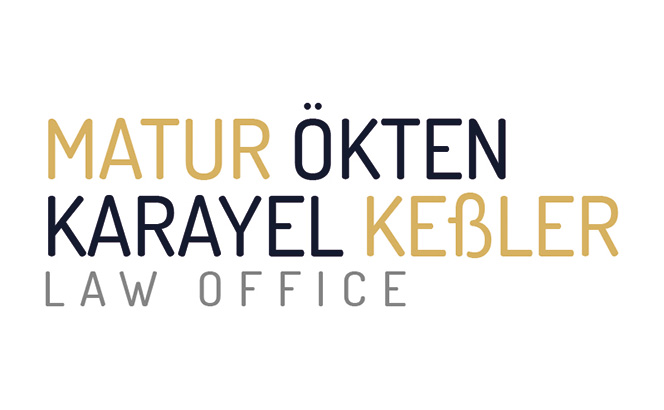The pre-contractual phase of the acquisition of a company or merger of companies typically begins with the first contact between the parties and ends in the best case scenario with the conclusion of the contract. This phase plays a vital role for the wellbeing of the transaction: parties reach various, usually non-binding, but possibly also legally binding preliminary agreements at this stage, from which, possible claims for performance or damages can arise.
Often a ‘due diligence’ is already carried out during this stage, which can serve an important function in the context of warranty claims. Even if the parties have not concluded legally binding preliminary agreements, ‘pre-contractual party obligations’ already arise under Turkish law. Thus, the negotiating parties to an M&A deal bear the risk of being held liable for ‘culpa in contrahendo’, that is a legal principal in contract law for many civil law countries including Turkey, which stipulates the duty to negotiate with care before the contract is concluded.
(I) Pre-contractual agreements –
Letter of intent, exclusivity agreement, confidentiality agreement, memorandum of understanding, heads of terms
The letter of intent (Niyet Mektubu), which originated in the Anglo-American legal sphere, is a well-known legal instrument in Turkey as well, that is utilised to mark the start of negotiations for company acquisitions and mergers. As can be reviewed from precedents, the Turkish Supreme Court (Yargıtay) has not yet commented on the question of the binding nature of letter of intents. In Turkish doctrine, it is assumed that a letter of intent is generally not legally binding, since the parties do not normally wish to be legally bound at the time of issuing the declaration of intent, but merely wish to signal to their counterpart that they are trustworthy and that their negotiating intentions are serious.
Complex transactions entail long contract negotiations and thus a protracted M&A process. In order to avoid loss of time due to repeated negotiations on individual points on which the parties have already reached an understanding, and in order to fix the current status of negotiations to prevent possible misunderstandings, the interim results achieved during the negotiations are often recorded in writing by drawing up a memorandum of understanding, heads of terms etc.
Turkish doctrine does not generally attribute binding legal effect to such written stipulation of individual points agreed before the commencement of a transaction. However, Article 2 of Turkish Code of Obligations can lead to the memorandum of understanding possibly being qualified as a binding agreement, if a consensus is to be understood from its content with regard to all the objectively essential points of the contract. The said provision reads as follows:
‘Secondary components of the contract
Article 2 – The agreement is established with the consensus of the parties. If there is a consensus on the essential components of the contract, the contract is considered enforceable even if it does not contain secondary issues.
In case parties cannot agree on the secondary components of a contract, the respective judge shall decide on the dispute as per the specific aspects of the matter.’
In order to avoid legal disputes about the conclusion of an agreement or to avoid the intervention of the judge as specified in the aforementioned provision, it is recommended to expressly stipulate in the memorandum of understanding that the negotiated individual points thereof do not yet constitute a legally binding agreement.
However the content, wording and the conduct of the contracting parties come to the fore in determining the binding nature of such documents: depending on its content and the conduct of the parties, the document in question can either be classified as a legally non-binding clarification of intentions under Turkish law or, if applicable, can be deemed a preliminary contract and even a main contract.
Furthermore, such pre-contractual texts may contain non-binding provisions and binding provisions at the same time. For instance, a letter of intent including non-binding provisions can stipulate that certain individual provisions such as exclusivity, non-disclosure, contractual penalty, break-up fees, provisions regarding the due diligence process to be carried out or regarding the allocation of contract negotiation costs etc. shall legally bind the parties. Therefore, it is advised to clearly state the will of the parties and to write down the points to be regarded legally binding, if any.
Exclusivity (münhasırlık) and non-disclosure provisions (gizlilik) do not always have to be part of the pre-contractual agreements and can be made as independent agreements. In Turkish law, breach of the contractual exclusivity obligation leads to the application of the provisions of Article 112 et seq. of Turkish Code of Obligations, which regulate the consequences of non-performance or improper performance of obligations in general. Thus, compensation may be claimed for damages incurred due to the breach of exclusivity. These provisions of the Turkish Code of Obligations also apply in the event of a breach of the contractual duty of confidentiality. It can also be assumed that a duty of confidentiality in pre-contractual negotiations already arises from the requirement to act in good faith (dürüstlük kuralı), the breach of which entails the liability for damages from culpa in contrahendo.
In cases where the pre-contractual document is to be qualified as a mere non-binding declaration of intent – which is generally the intention of parties – it does not result in a compelling necessity to commence further contract negotiations or an obligation to finally conclude the main contract under Turkish law. However, according to Turkish law, liability for culpa in contrahendo may start at this moment, due to the establishment of a relationship of trust.
(II) Pre-contractual liability–
culpa in contrahendo
In Turkish law, liability arising from culpa in contrahendo is a legal institution recognised not only by the doctrine but also in case law, although the development of the pre-contractual obligations in Turkey, in contrast to Germany, has not yet reached the stage of being enshrined in law.
The legal situation in Turkey with regard to liability arising from culpa in contrahendo is certainly a consequence of the adoption of Swiss Code of Obligations as the basis for Turkish Code of Obligations. Through the reception of the Swiss Code of Obligations, thoughts of Rudolf von Jhering – probably the most important German jurist of the 19th century – on liability arising from culpa in contrahendo, which long ago had found their recognition not only in isolated provisions of the German Civil Code, but also in those of the Swiss Code, have crossed the borders of the German-speaking legal area and have found their place in Turkey, thus helping to shape Turkish law.
Despite the absence of a provision on pre-contractual obligations in Turkey, it is unanimously assumed both in case law and in the doctrine that already at the pre-contractual stage the parties to a contract are subject to certain obligations that are based on the idea of trust (good faith – dürüstlük kuralı), laid down in Article 2/I of Turkish Civil Code, whose culpable breach entails liability under culpa in contrahendo.
In order to justify liability for culpa in contrahendo under Turkish law, a relationship of trust (güven ilişkisi) must have arisen between the parties in the course of contractual negotiations (sözleşme görüşmeleri). In addition, one of the pre-contractual duties arising from Art. 2/I Turkish Civil Code must have been breached by one party during the contract negotiations (dürüstlük kuralından doğan davranış yükümlülüğünün ihlali), whereby this breach of duty must have led to the occurrence of damage on the side of the other party. In other words, there must be a natural and adequate causal connection between the breach of duty and the damage incurred (zarar ve illiyet bağı).
The fact that the parties, in the course of contract negotiations for the purpose of possibly concluding a contract, allow each other to enter an area of their lives where their interests may be more easily affected is considered in our doctrine and case law as an indication that there is mutual trust between the parties during this period.
The pre-contractual obligations already exist between the negotiating parties of an M&A deal during the period in which the due diligence is carried out. Therefore, due diligence can play an important role, especially with regard to culpa in contrahendo liability, because it can influence the creation and fulfilment of the seller’s duty of disclosure. Furthermore, it plays an important role in deciding whether the buyer can be accused of contributory negligence with regard to the non-knowledge of certain circumstances decisive for the conclusion of the contract, which leads to the (partial or complete) exclusion of its warranty rights.
(III) Conclusion
Before the conclusion of any agreement, various pre-contractual obligations already arise under Turkish law, which serve to protect the interests of both parties. Apart from this, parties to an M&A negotiation have several types of pre-contracts at their disposal in Turkey, which, depending on the terms, can either be binding or non-binding.
Hence, it is recommended to draft pre-contractual M&A agreements in a way compatible with the intentions of both parties and to pay close attention to the interests of the other party during negotiations, in order to avoid possible pre-contractual liabilities.
For more information, please contact:

Av. M. Efser Karayel-Keßler, LLM (Cologne)
Attorney at Law
E: efserkessler@maturokten.com
DE: 0049 (0) 178 780 53 76
TR: 0090 (0) 544 535 2565Istanbul
Gümüşsuyu, İnönü Caddesi
No: 24/4 Beyoğlu İstanbul
T: 0090 212 260 1062
F: 0090 212 260 1062
Izmir
5003/3 Sok. Tokatlı Plaza
No: 3 Kat: 6 D: 606
Bornova/İzmir
T: 0090 232 486 4644
F: 0090 232 486 4634
















